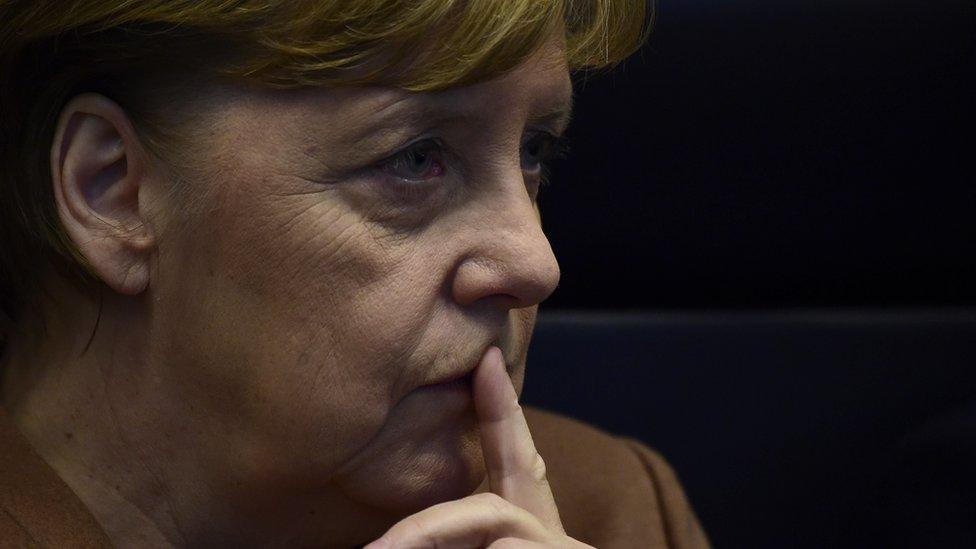German Covid Easter U-turn shakes Merkel's cool, calm image
- Published
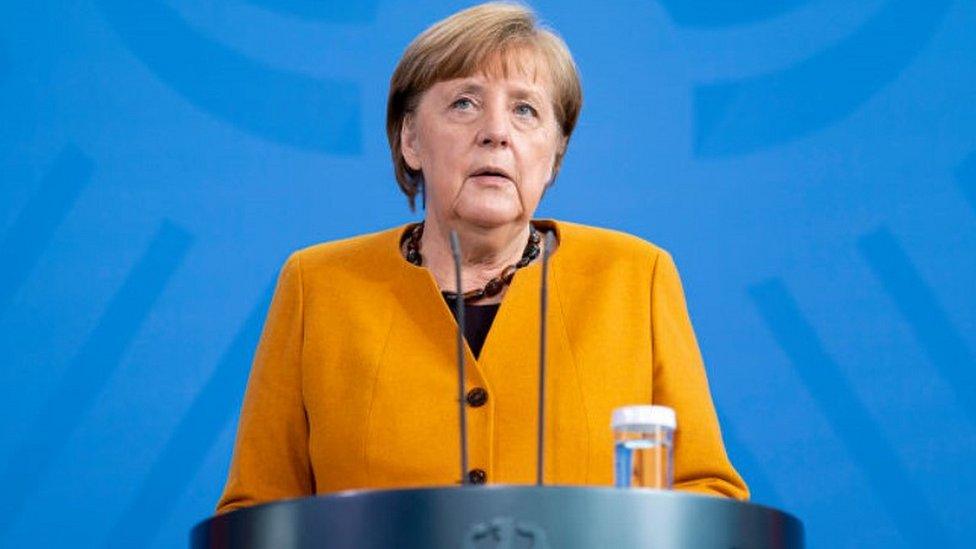
It's not often a world leader insists so openly on taking the blame. In newsrooms across Europe journalists looked on baffled as Chancellor Angela Merkel announced that a strict Easter Covid lockdown, agreed and announced just 30 hours earlier, was off.
Mrs Merkel not only apologised but begged forgiveness. "This mistake is mine alone," she said.
Once the surprise subsided, German commentators took a rather favourable view.
"Respect!" said the tabloid Bild. Tagesspiegel pictured Mrs Merkel in biblical robes, bent under the weight of a cross, with the words "Merkel Culpa". Mrs Merkel, ran the general view, had made a mistake and, rightly, come clean about it.
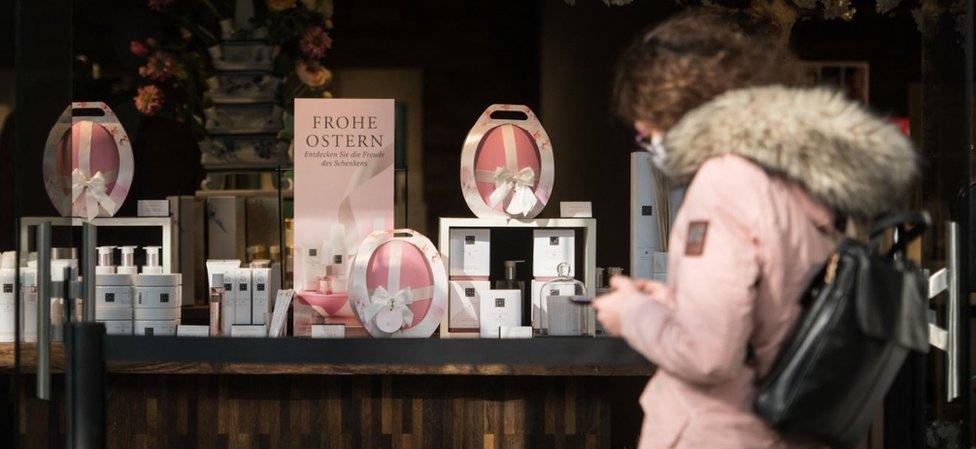
The original plan was for a five-day Easter shutdown, but the chancellor relented
But most are still scratching their heads over why the chancellor would expend so much political capital over such an insignificant development. Germany usually shuts up shop for three days of public holiday over Easter.
Mrs Merkel had agreed with regional leaders to extend the number of "Ruhetage" (rest days) to five. But the plan reportedly infuriated business owners, concerned about logistics, and in particular supermarket chains, which warned of empty shelves if suppliers and staff were forced to shut down.
Given the increasingly chaotic nature of the Covid pandemic response here, it's fair to assume that many Germans might have simply shaken their heads and muttered, had the plan been shelved in a less dramatic fashion.
So why the mea culpa?
It's possible that Mrs Merkel, the daughter of a pastor, and a leader who frequently cites the importance of transparency within a democracy, simply felt it was the right thing to do.
But with her apparently heartfelt apology Angela Merkel has, by accident or design, arguably distanced herself from Germany's regional leaders who, throughout the pandemic, have bickered, procrastinated and repeatedly ignored her calls for a tough national strategy. That's their prerogative of course - this is federalism.

More on Europe's pandemic



The Easter plan was, by all accounts, her plan.
It was one of the rare corona policies for which she was more or less directly responsible unlike, say, the fudged agreements last autumn which, against her wishes, saw regional leaders grudgingly - and belatedly - introduce restrictions as the second wave began.
Mrs Merkel, who wanted a hard, fast, national strategy then said she regretted the tardy response - but she didn't apologise for it.
It was perhaps telling then that, the day after her Easter U-turn, she stood up in parliament and effectively challenged regional leaders to put their money where their mouth was - calling on them to take the initiative and be more creative in their response.
If you think you can do it better, the subtext seemed to say, then get on and do it.
Three key moments from Angela Merkel's career
Pre-election anxiety
At least one leader, Berlin mayor Michael Müller, is now resisting the implementation of an emergency brake which, it was agreed, all German states must impose when infections reach a certain limit. So it's fair perhaps to assume that Mrs Merkel's exasperation is growing.
Some wonder whether Mrs Merkel - now just months away from stepping down - apologised because she felt she had nothing now to lose.
Quite the reverse. Support for Mrs Merkel's coalition government, and her centre-right Christian Democrat (CDU) party, is wavering. Some in the CDU fear it might be driven from government come the September general election.
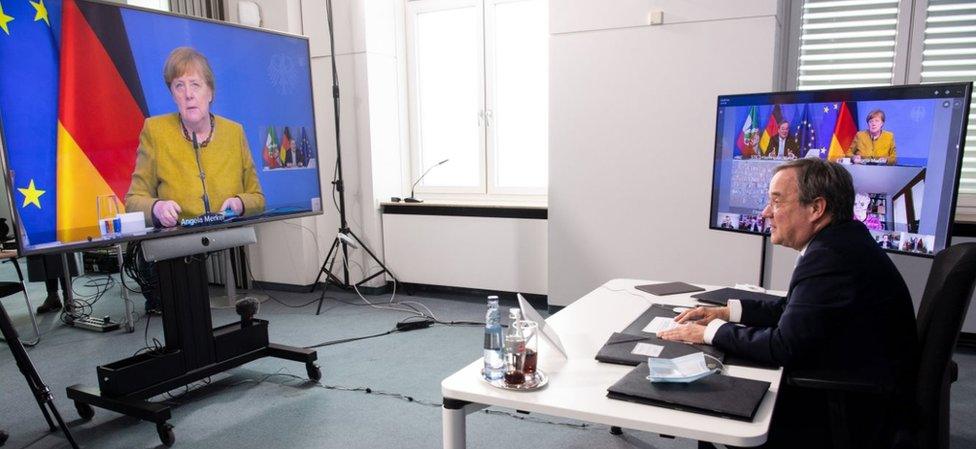
CDU leader Armin Laschet has had a difficult start as head of Angela Merkel's party
Nor is Mrs Merkel showing any sign of stepping back to allow Armin Laschet, who it's widely assumed will be her potential successor, more room centre stage.
Commentators argue that, if Mrs Merkel really wants to make amends, she should turn her attention to Germany's vaccination programme. Its slow rollout is an increasingly incendiary source of public frustration. Just 10% of the population have received a first dose.
Case numbers are rising exponentially, fuelled by the spread of the B117 or UK/Kent variant. Lothar Wieler of the Robert Koch Institute, which advises the government, has warned there are already indications that Germany's third wave could be worse than the first two. Without further action, he added, case numbers could soar to 100,000 a day.
Mrs Merkel, who has warned that hard weeks lie ahead, has promised to accelerate the vaccine rollout, and is sticking to her pledge to offer all adults a vaccine by late September.
The chancellor - who after 16 years in office is famed for her crisis management and safe pair of hands - may find her reputation depends on that pledge.
- Published21 June 2021
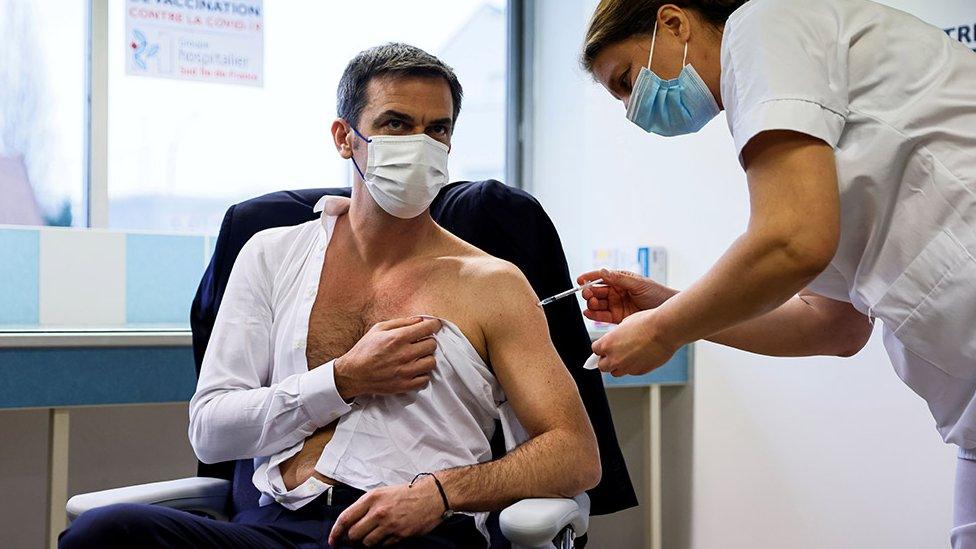
- Published20 February 2021
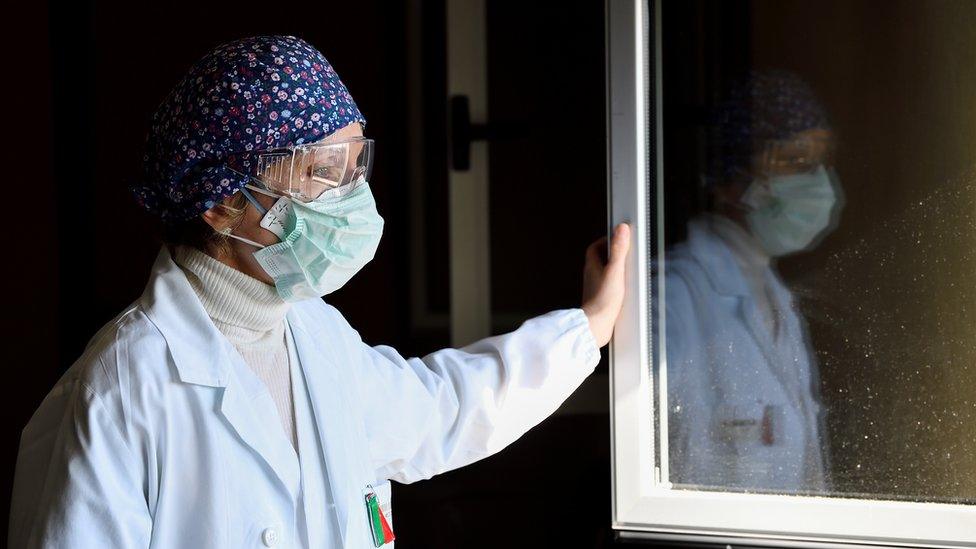
- Published30 October 2018
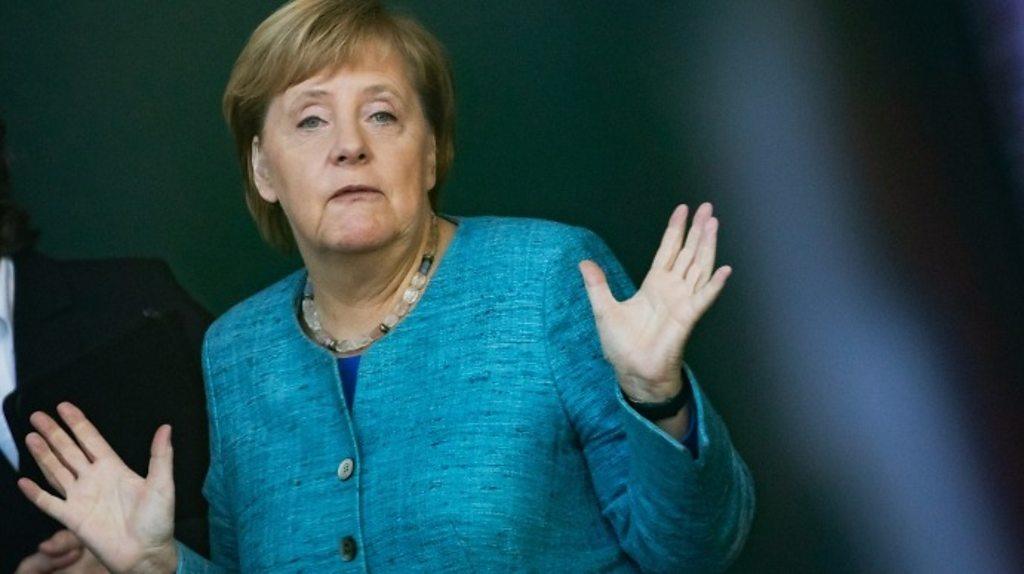
- Published5 July 2022

- Published26 March 2021
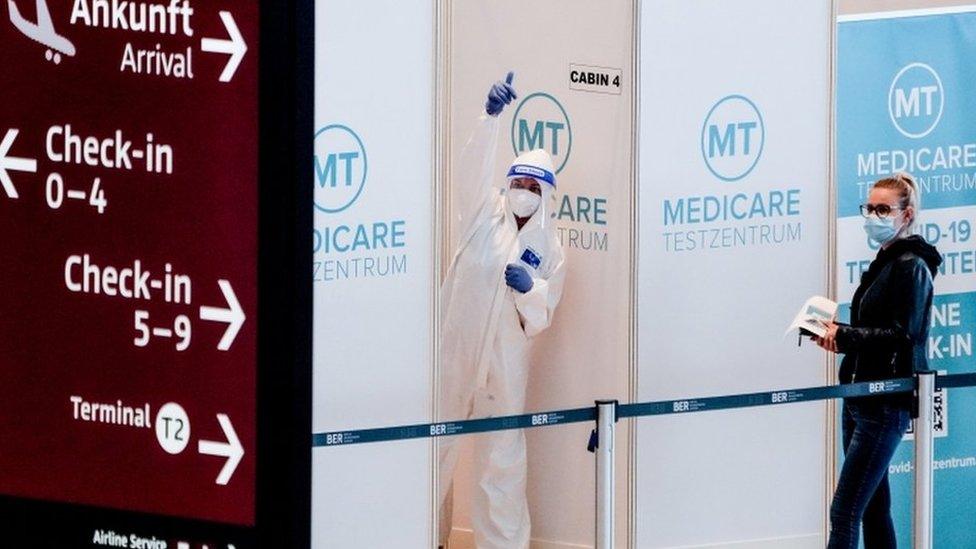
- Published3 June 2019
